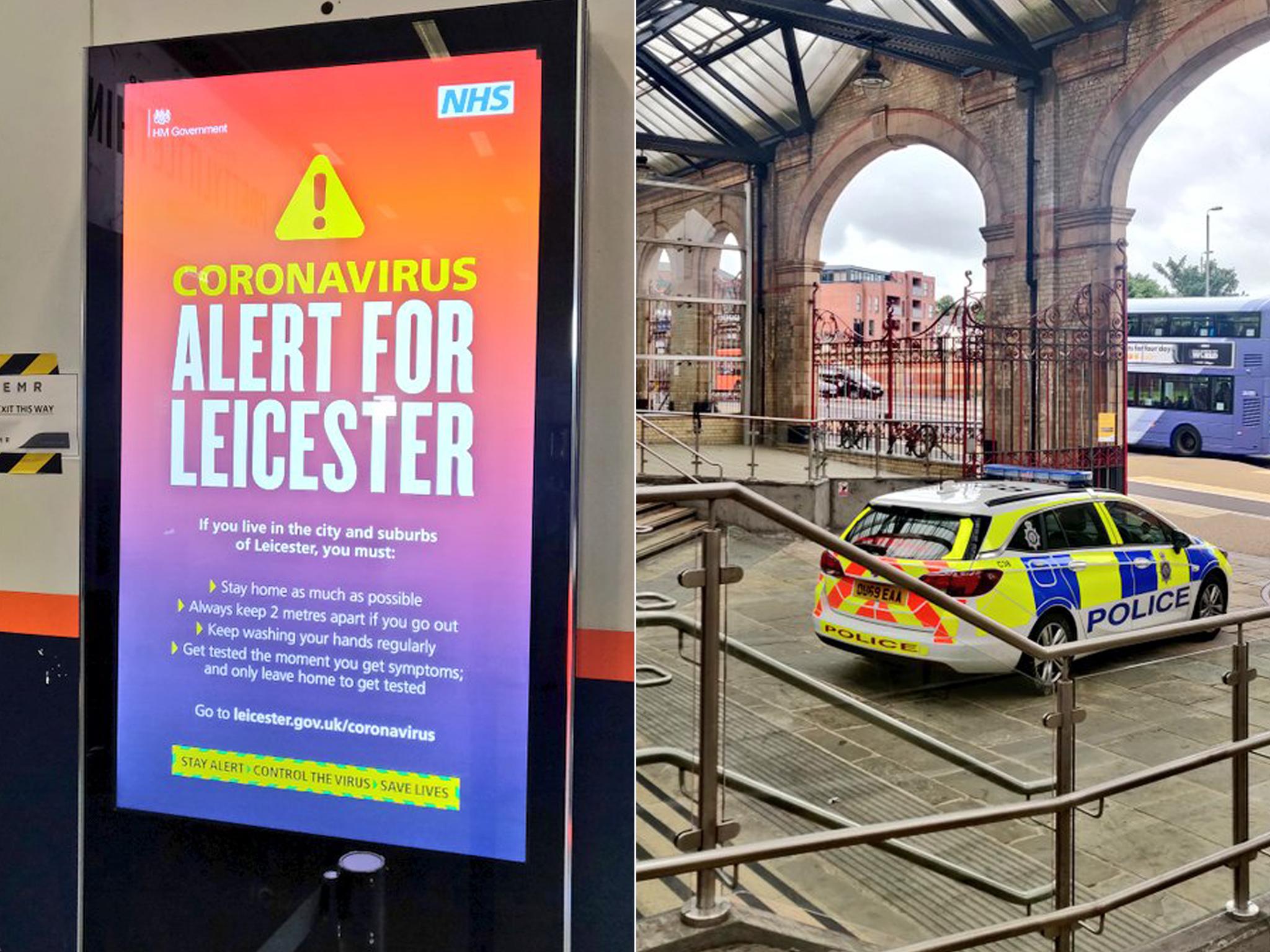Lockdown England: Gatherings of 30 people allowed but Matt Hancock given power to close any outdoor space
Relaxed restrictions do not apply to Leicester, which is subject to separate new laws
Your support helps us to tell the story
From reproductive rights to climate change to Big Tech, The Independent is on the ground when the story is developing. Whether it's investigating the financials of Elon Musk's pro-Trump PAC or producing our latest documentary, 'The A Word', which shines a light on the American women fighting for reproductive rights, we know how important it is to parse out the facts from the messaging.
At such a critical moment in US history, we need reporters on the ground. Your donation allows us to keep sending journalists to speak to both sides of the story.
The Independent is trusted by Americans across the entire political spectrum. And unlike many other quality news outlets, we choose not to lock Americans out of our reporting and analysis with paywalls. We believe quality journalism should be available to everyone, paid for by those who can afford it.
Your support makes all the difference.Gatherings of up to 30 people will be allowed anywhere in England — apart from Leicester — under new lockdown laws coming into force on Saturday.
Larger meetings will be permitted if venues, such as pubs or attractions, have carried out a risk assessment and take “all reasonable measures to limit the risk of transmission of coronavirus”.
But the health secretary has been given unprecedented new powers to ban access to any public outdoor space.
The law states that Matt Hancock can issue a “direction to restrict access” without parliamentary approval in response to “a serious and imminent threat to public health”.
An edict can close outdoor spaces entirely or at specified times, and must be reviewed every week.
Entering a restricted area will be an offence punishable by an £100 fine, and the law allows companies to be prosecuted for violating closure order and restrictions on gatherings.
Anyone who owns or occupies a closed public space will be able to appeal to magistrates.
The new Health Protection Regulations were not published until Friday afternoon, hours before they were to come into effect.
An official document said the restrictions would last until being terminated by the health secretary, and would be reviewed every 28 days.
It came after lawyers and campaign groups called for the more than 18,000 fines so far issued under coronavirus laws to be reviewed, because of racial disproportionality and legal mistakes by the police.
Kirsty Brimelow QC, a human rights barrister, questioned why the government continued to change the Health Protection Regulations without parliamentary scrutiny.
“There was no doubt initially that we needed them, but as the time goes by there’s no justification for continuing to use emergency legislation,” she told The Independent.
“My view is that the latest amendments have become so complex and arbitrary that they no longer are taken seriously.”
The Health Protection Regulations were first brought in on 27 March, at the start of the UK’s coronavirus lockdown, and banned leaving home “without reasonable excuse”.
But they have been changed multiple times as restrictions have eased, and diverged in England, Scotland, Wales and Northern Ireland.
Senior police officers have called for consistency amid widespread public confusion, and difficulties enforcing restrictions on private gatherings.
Separate laws were published for Leicester, which is subject to the first “local lockdown” in the UK.
From Saturday, residents will be banned from staying outside their home “without reasonable excuse”, and people from outside Leicester will be banned from staying overnight in the city.
But there is no legal restriction on people leaving Leicester or going outside without “reasonable excuse”, despite government guidance to stay at home.
Outdoor gatherings of more than six people outside, or more than two people inside, will be prohibited in Leicester.
“Linked households” including single parents or people who live alone are exempt from the restrictions.

Other exceptions include going to a funeral, escaping the risk of harm, providing care to vulnerable people or visiting loved ones who are either giving birth or dying.
The law defines a gathering as “when two or more people are present together in the same place in order to engage in any form of social interaction with each other, or to undertake any other activity with each other”.
Businesses inside the “protected area” of Leicester designated by postcodes will be forced to close under the law, apart from supermarkets, pharmacies, banks and other services deemed essential by the government.
The legal changes came a day before pubs and restaurants were permitted to open in the rest of England, sparking concerns over potential drunkenness and disorder.
Martin Hewitt, chair of the National Police Chiefs’ Council, urged people not to “be a drain on emergency services”.
“We know that the public will feel a sense of relief that things are slowly getting back to normal and will want to take this new opportunity to enjoy themselves with their friends and family,” he added. “We want everyone to have a good time but please do so safely, responsibly, and with due regard for the public health measures in place.”

Join our commenting forum
Join thought-provoking conversations, follow other Independent readers and see their replies
Comments